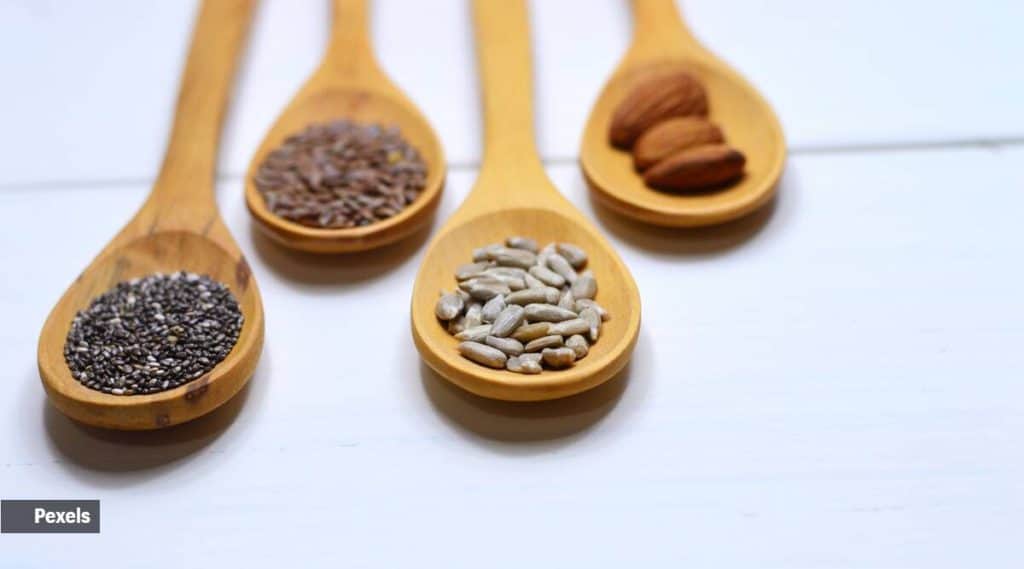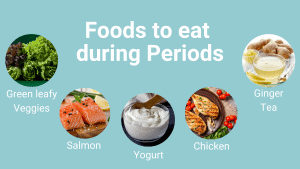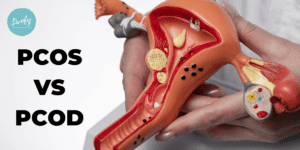PCOS is quite common in today’s girls and women. A woman’s hormones are a complex system that operates in a delicate balance. This means that a minor hormonal imbalance could become the underlying problem. This is also true for a variety of health issues, such as irregular periods, acne, PCOS, and so on.
When women learn they have PCOS, they usually rush to the doctor and start taking medications. They must be unaware of natural treatments, medications, and seed cycling for PCOS. Do you have any idea what it is? If not, please inform us as soon as possible.
What Is Seed Cycling For PCOS?
Seed cycling for PCOS is an all-natural method of assisting women’s reproductive systems. And is one of the most popular wellness practices. It is also known as the seed rotation diet because it consists of eating healthy seeds while suffering from PCOS. It is a natural medication used to regulate women’s reproductive hormones and is very effective in treating irregular menstrual cycles and PCOS.
This simple practice, on the other hand, aids in hormone balance, reduces PMS symptoms, increases fertility, and stimulates menstruation if it is absent.
Thus, seed cycling for PCOS is the most well-known treatment for infertility and menopausal symptoms such as hot flashes, fatigue, and so on.
Seed cycling can be applied at any point in a woman’s life (including post-menopause). However, it is especially helpful when transitioning off of hormonal birth control or dealing with post-birth control syndrome symptoms such as acne, irregular or missing periods, or PMS.
Process Of Seed Cycling For PCOS
The seed cycling process is not as complicated or scientific as it appears when read. It consists of consuming two tablespoons of raw and freshly ground seeds. These seeds have hormone-regulating properties and help the body maintain estrogen and progesterone levels. You can also combine them with milkshakes or cornflakes.
1. Follicular Phase Of Seed Cycling:
A woman should consume one tablespoon of pumpkin, flax, and chia seeds during this phase. From the start of her period until she ovulated. However, for most women, this phase lasts two weeks.
2. Luteal Phase Of Seed Cycling:
This is the next stage of the reproductive cycle. It starts on the first day of ovulation and ends with the start of periods. During this phase, a woman should consume 1 tablespoon of sunflower and sesame seeds per day until the end of the period. This, however, only lasts about two weeks.
Seeds for Managing PCOS
- Seeds are high in nutrition and can help with PCOS management. They are small in size but high in nutrients.
- Seeds are high in protein, fiber, and omega-3 fatty acids. They are also high in vitamins and minerals, which are required for the treatment of PCOS.
- Seeds are high in omega-3 fatty acids, which are both healthy and necessary for our bodies. However, the human body is incapable of producing omega-3 fatty acids. It is only available as a dietary supplement. These fatty acids are abundant in seeds, making them an excellent vegetarian source.
- Various seeds aid in weight management, which is a major concern for people with PCOS. For those watching their weight, seeds are a healthy snack option. Because of their high fiber content, they keep us full and prevent us from snacking on calorie-laden unhealthy snacks.
1. Pumpkin Seeds
Pumpkin seeds are high in vitamins and minerals like A, B, magnesium, copper, zinc, and iron. They are also high in proteins and good fats, such as monounsaturated fats, which help to balance hormones. Furthermore, after menopause, the minerals found in pumpkin seeds reduce the risk of osteoporosis, which leads to bone health deterioration. According to research, pumpkin seeds are also a good source of plant sterols, which help control blood cholesterol levels. You should consume pumpkin seeds to boost your immunity.
Pumpkin seeds can be eaten on their own or mixed into yogurt, smoothies, and salads. These seeds are extremely versatile. They can also be roasted and mixed with spices such as pepper and cinnamon before being eaten with vegetables and fruits. Cinnamon is a valuable herb/ spice in the treatment of PCOS.
2. Flax Seeds
Flaxseeds also contain a variety of vitamins and minerals that are necessary for a healthy reproductive system. Furthermore, they are particularly high in antioxidants. According to research, the omega-3 fatty acids found in flax seeds help to balance estrogen production. When estrogen levels are higher than necessary, the menstrual cycle cannot function normally. Flax seeds can help with that. These seeds also help with other PCOS side effects such as mood swings, painful periods, muscle cramps, and so on.
3. Chia Seeds
Iron, zinc, calcium, and magnesium are all found in chia seeds. These primarily regulate the emotional swings that occur during periods. Uncontrollable mood swings are more common in PCOS patients than in the general population. This condition interferes with the patient’s daily activities. Thus, regular consumption of chia seeds regulates hormones and regulates menstrual flow. Chia seeds are also high in fiber. According to nutritional data, 30 grams of chia seeds contain about 10 grams of fiber.
Chia seeds have a jelly-like consistency when mixed or soaked in water. As a result, it adds volume and richness to smoothies and other beverages. Furthermore, it can be used as a vegetarian substitute for eggs in baking. Iron, zinc, calcium, and magnesium are all found in chia seeds. These primarily regulate the emotional swings that occur during periods. People who are extremely versatile and have a boon for overall health.
4. Sesame Seeds
Zinc, calcium, and magnesium are abundant in sesame seeds. It also contains vitamin E, which is necessary for fertility. According to research, these vitamins and minerals help to balance hormones by increasing progesterone secretion. Furthermore, the proteins in sesame seeds are beneficial to overall health. Sesamin and sesamolin, for example, are plant sterols found in sesame seeds that help control blood cholesterol levels.
Sesame seeds can be added to a variety of dishes and combined with both savory and sweet foods. They make an excellent salad dressing.
5. Sunflower Seeds
Sunflower seeds are high in vitamin E and can help with infertility. They also help with PMS (Pre-Menstrual Symptoms). Sunflower seeds are essential for increasing progesterone hormone production. They also aid in the regulation of other PCOS symptoms such as inflammation and mood swings. Sunflower is also high in selenium and magnesium. According to research, sunflower seeds contain a variety of plant sterols that work together to promote cardiovascular health. Sunflower seeds contain selenium, which aids in liver detoxification.
Salads can benefit from the addition of sunflower seeds. They can also be mixed into cereals and smoothies. When ground, these seeds have a suitable texture and can coat fish or meat while frying.
How to Consume Seeds?
- You can eat the seeds raw. As an evening snack, eat a handful of seeds.
- Seeds are a healthy snack to have before or after working out. Because of the essential nutrients, the fiber-rich seeds keep you satiated for a longer period of time.
- You can incorporate seeds into smoothies and yogurts. For maximum benefit, simply add them to overnight oats.
- Soups and milkshakes can benefit from the addition of seeds.
- Seeds are so versatile that they can also be used in baked goods. They contribute to both the texture and the flavors.
- To enhance the flavor of seeds, they can be cooked or roasted.
- You can dry roast them, powder them, and mix them with a variety of foods.









